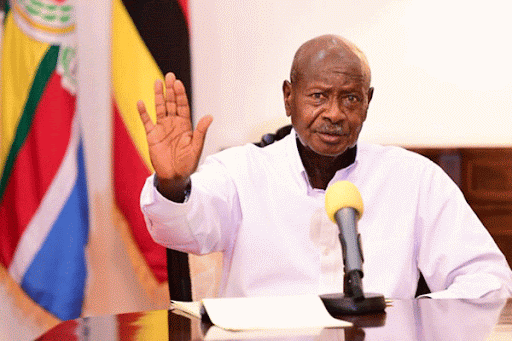
The Employment and Labour Relations Court in Nairobi has cautioned police leadership against using transfers as a tool of discipline or harassment.
The warning was issued in a case where a serving officer challenged a move that would have seen him redeployed only three months after taking up a new posting.
The court ruled that frequent and premature transfers can amount to unfair labour practices and violate the constitutional rights of officers and their families, particularly where they disrupt schooling and family stability.
The case was filed by Corporal Martin Paul Geoffrey, a police officer who has served in the National Police Service since 2008.
Geoffrey, currently attached to the Directorate of Criminal Investigations (DCI) Headquarters, Anti-Abductions Unit, told the court that although transfers are expected within the service, his sequence of movements over the years had become excessive, disruptive, and lacked fair administrative justification.
He traced his troubles to earlier stations, stating that he had served in Isiolo, Mandera, and later Buruburu Police Station after returning to Nairobi.
However, he claimed his posting history took an unusual turn after a personal dispute with a colleague — one Sergeant Sheila Kipsoi, who works within the Anti-Narcotics Unit.
“The Petitioner states that he disclosed to his superiors that, sometime in 2016, he had been wrongly accused by the said Sergeant Sheila Kipsoi and charged in Milimani Magistrates' court in Criminal Case No. 1381 of 2016. He was acquitted but was then immediately transferred from Buruburu Station to Mandera,” the judgment states.
The move, he alleges, marked the beginning of repeated relocations. From Mandera, Geoffrey was later moved to Gatundu in Kiambu County, then Mugutha Police Station, before finally applying for and successfully securing a transfer to DCI Headquarters, after undergoing a competitive process that included an interview.
He took up the new role in late 2024 and had only served there for about three months when he received communication that he was being moved again, this time to the Anti-Stock Theft Unit.
The officer challenged this latest transfer, arguing that it violated Chapter 72, paragraph 6(2) of the National Police Service Standing Orders.
He argued the chapter provides that an officer should serve in a duty station for at least one year before being considered for another deployment.
He further cited Article 41(1) of the Constitution on fair labour practices, Article 47 on fair administrative action, and provisions of the National Police Service Commission Transfer and Deployment Regulations, 2015, which require that transfers be fair, transparent, and justified.
Geoffrey argued that the transfer pattern had taken a toll on his family, as each move forced him to relocate his children and disrupt their school calendar.
He also asserted that the transfers appeared targeted and punitive, rather than driven by operational needs. “The Respondents (NPS, IG, and DCI) did not file a response to the application and petition despite service,” it further reveals.
The matter proceeded unopposed, with the court relying solely on the documents and submissions filed by the Petitioner.
Justice Mathews Nduma, in his judgment, agreed that the officer’s transfer record pointed to an unreasonable pattern that went beyond normal administrative reshuffles.
The court noted that Geoffrey had barely settled into his new role at the DCI Headquarters after a rigorous application process before being handed another transfer.
“The manner in which the Petitioner has been frequently deployed and transferred suggests that the transfer is being used as a disciplinary measure, which should not happen,” Justice Nduma said.
He added that such conduct constitutes harassment, affecting not only the officer but also his family emotionally, financially, and educationally.
The judge emphasised that discipline within the police service must follow due process, not informal administrative actions disguised as redeployment.
He stated that the Constitution does not abandon police officers’ rights simply because they work in a uniformed and hierarchical command structure.
“If the National Police Service has any issue with the discipline or performance of the Petitioner or any police officer, for that matter, transfer is not the go-to measure,” he observed.
Accordingly, the court quashed the transfer and ordered that Geoffrey remain at DCI Headquarters, as part of his reliefs sought.
The judge also issued a declaration that the attempted transfer was unlawful and unconstitutional, violating the Constitution and the standing orders requiring a minimum posting period.
The National Police Service was also directed to pay the costs of the petition. However, the court declined to award damages or grant broad restraining orders.














